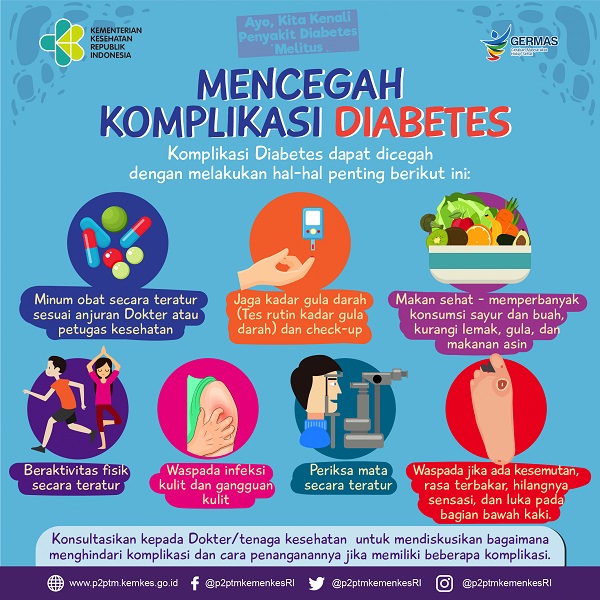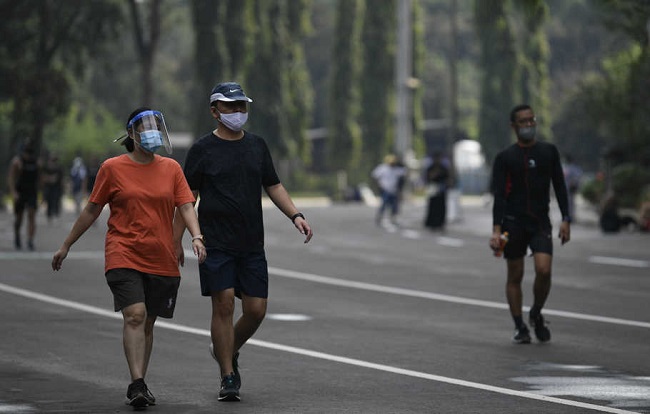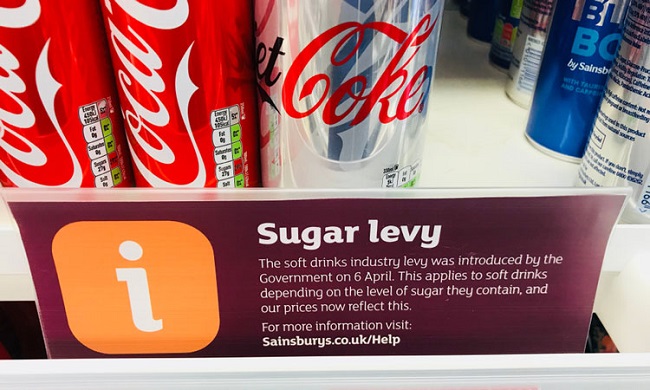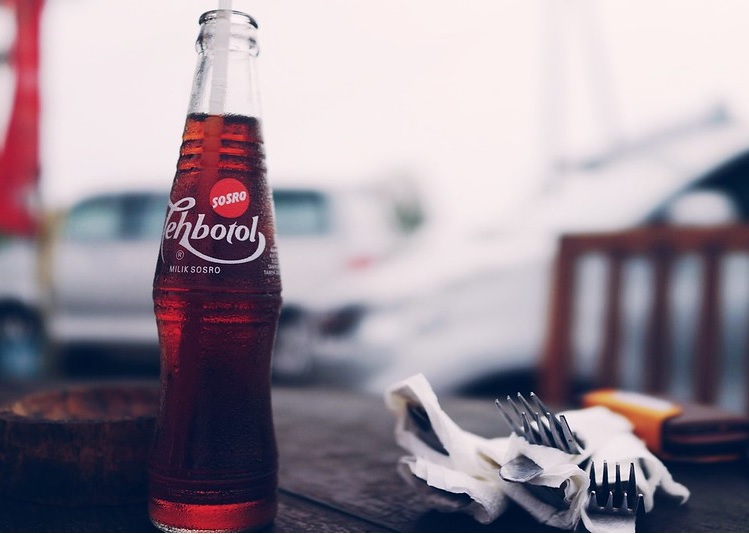Indonesia lags behind many countries in taxing high sugar drinks
Indonesia lags behind many countries in taxing high sugar drinks
Citta Widagdo
Gunawan*, 40 years old, has been living in the UK for two years. During this time, he was diagnosed with Type II diabetes. He is planning to soon move back home.
‘I do worry about diabetes treatment in Indonesia. I come from a family with a history of diabetes and I have young children to look after. When I got diagnosed with diabetes here, I was immediately offered regular treatment, including eye and foot care. I even managed to lose weight by switching to healthy meals and regular exercise. From the stories I have heard from my family and friends back home, though, diabetes management can be expensive, and it is very difficult when you are bombarded with cheap and unhealthy beverages everywhere. I follow the government updates here on diabetes and food policy, whereas I have not heard of the same effective regulations in Indonesia, and it is the country where my children and I will spend the rest of our lives.’
Gunawan is not alone in his worries. A 2019 report from the International Diabetes Federation found over 10 million Indonesians were diagnosed with diabetes, ranking it among the top ten countries worldwide.
Since 2014, Indonesia’s national health insurance programme has been managed by the BPJS Kesehatan (Social Security Organising Agency for Health), which has so far enrolled over 223 million citizens. By 2019, diabetes made up BPJS Kesehatan’s highest health spending at Rp.6.1 trillion (A$547 million). This does not count the further costs from associated complications emerging from the disease, which are estimated at up to Rp.20 trillion.
Faced with this high burden on health spending, the Indonesian government has proposed measures targeting the prevention of diabetes by increasing the tax on sugar-sweetened beverages (SSBs). Indonesia is a massive market for SSB products with 8-10 per cent growth each year, and estimated total sales of US$ 12.1 billion in 2020. In February 2020, Finance Minister Sri Mulyani Indrawati met with MPs from Commission XI of the People’s Representative Council to discuss this matter and has proposed an excise tax of Rp.1,500 per litre on SSBs. She resurrected this proposal before the Council in January 2021; however, there is no timeline indicating when the proposal will be accepted.
Governments around the world have introduced such taxes and studies have confirmed its benefits for preventing non-communicable diseases (NCDs). Once considered a high-income country problem, NCDs are now also on the rise in low and middle-income countries, particularly in urban settings. Obesity is also on the rise in Indonesia. In 2018, 35.4 per cent of people were either overweight or obese, according to government data.
After receiving good levels of treatment in the UK, Gunawan, whose family was also treated in Indonesia’s health system, is concerned about returning home.
‘Living in the UK, we could easily read on the news about all the problems faced by the National Health Service, and this is a country with sugar traffic warnings on food packaging and unhealthy beverages banned in my children’s school and other measures to help people stay healthy. When I compare it to BPJS Kesehatan in Indonesia, knowing that my entire family will be part of the system, it is quite a worry.’
COVID-19 complications
Indonesia’s health system and domestic economy are currently facing extreme pressures due to the COVID-19 pandemic. The link between those who become very ill with COVID-19 and co- morbidities, including NCDs such as diabetes and obesity, reveals that those with such underlying health conditions are at greater risk.
To combat the escalating crisis in NCDs in Indonesia, in 2015 the Department of Health launched the Gerakan Masyarakat Hidup Sehat – Germas (Healthy Living Campaign), which included seven steps ranging from highlighting the importance of exercise to increasing the consumption of fruit and vegetables. With its emphasis on individual agency, the program has been far from successful.
Germas alone will not solve the problem. The World Health Organization recommends adopting measures that address societal determinants of health, rather than putting the burden of responsibility on individuals alone.

COVID-19 has made this situation even more acute. Anita, a lawyer who has been working from home since the start of the pandemic, explains that her lifestyle has changed significantly.
‘I used to live near a car-free area that was full of people exercising but at the same time eating unhealthy food. Now that we are in a Covid lockdown, food moves easily through a delivery app where there is no calorie information or health warnings. I know about managing a healthy lifestyle, but it is difficult when food is very easy to get from your phone 24 hours a day, and the app offers no warnings whatsoever on the nutritional information. I do miss living back where my family is in smaller villages outside Java, where people cook real food and there are more options for healthier food. Although I must say, anywhere you go, you see sugary soda!’
Tya*, 23, is an avid social media user who has previous experience as an online content manager for local parks across Jakarta. During the pandemic she observed the influx of people running and joining yoga group events at various parks in the city, but she also noticed that local sellers at the parks were kept busy selling cheap SSBs to visitors. ‘It was hard to avoid these sellers as they were sort of playing a role in how people were hanging out – talking and enjoying food and drink, but there were no warnings whatsoever on the booths or the packaging.’ Both Tya and Anita welcome government regulations and taxes on unhealthy food.

The sugar tax saves lives
To date over 40 countries across Europe, the Middle East and the Pacific have implemented taxes on SSB products. Various studies have demonstrated the significant impact of sugar tax on improving health outcomes. In the 18 months after Chile adopted a raft of regulations that included advertising and marketing restrictions on unhealthy foods, bold front-of-package warning labels and taxation on SSB products, consumption of SSBs dropped nearly 25 per cent.
Malaysia adopted a sugar tax of RM 0.4 per litre in 2019, and Thailand adopted a tax of 14 per cent of retail price plus additional tax depending on sugar content. In Mexico, implementation of a SSB tax accompanied by a highly visible campaign, resulted in an average decline of 7.6 per cent over a two- year period.
In the UK, where Gunawan lives, progress made under the Soft Drinks Industry Levy shows that there has been a 28.8 per cent sugar reduction per 100ml and a consumer shift towards zero or lower sugar products. Modelling in Australia found that implementing sugar tax would prevent over 4400 cardiovascular diagnoses, 1100 stroke diagnoses, over 1600 deaths, and save the national health care budget to up to A$609 million. Similar modelling for Indonesia published in 2018 found that a US$0.30 per litre tax on SSBs would see a significant decrease in cases of overweight people and obesity and could prevent over a million cases of diabetes.

A looming public health crisis can be avoided, but it will require a different set of political choices. In the countries mentioned here, despite the tax being met with initial resistance and heavy lobbying from the food industry, companies have since reformulated hundreds of products, reducing the amount of sodium in food and substituting artificial sweeteners for sugar in carbonated drinks.
Stronger measures require cooperation and partnerships across the whole government, putting the human right to good health and the right to live at the core. Following the successes of countries such as Mexico and Chile, the Indonesian government needs to introduce public health laws and policies targeted to make meaningful differences and achieve greater health justice.
Like millions of Indonesians, Gunawan, Anita and Tya are trying their best to live healthy lives in a world full of unhealthy choices. The proposal for a tax on SSBs is an important step for the NCD prevention journey ahead. As Anita put it, the answer may lie in simple behavioural change. ‘I would not pay for expensive soda, and I think people would think twice if the government put extra taxes on unhealthy beverages.’
*names have been changed
Citta Widagdo (cpw661@student.bham.ac.uk@bham.ac.uk) is a Doctoral Researcher in Public Health Law and Ethics at the University of Birmingham School of Law.












